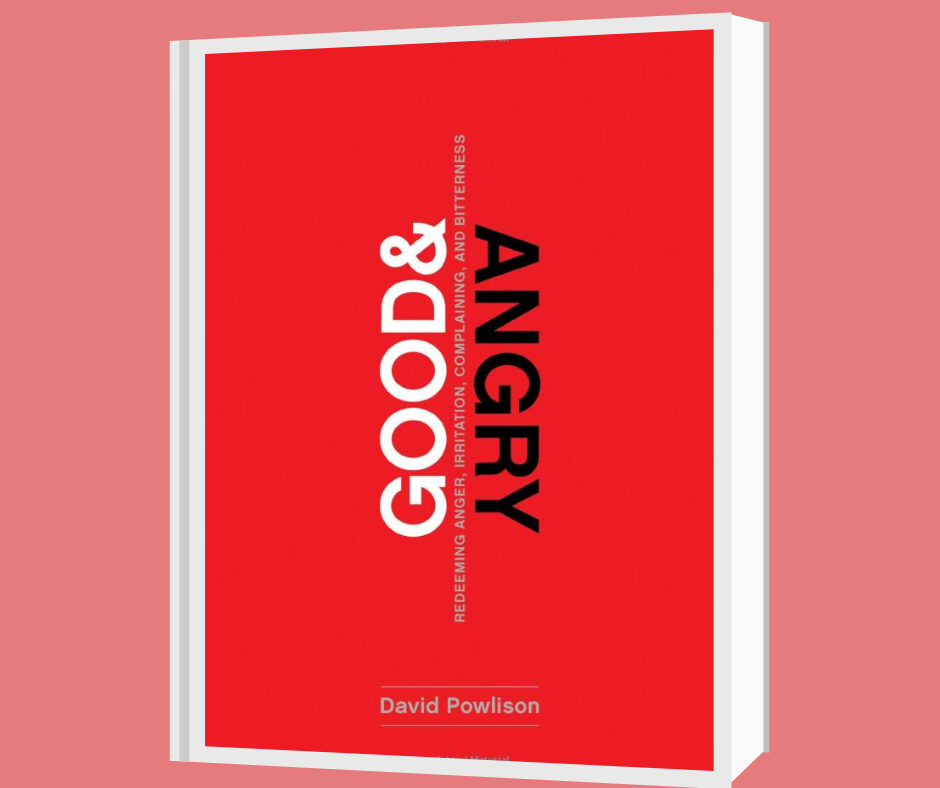Book Reviews
Good & Angry, by David Powlison | Review by Rosa Byler

The term “righteous indignation” is a familiar one; however, most of us are not quick to apply that label to our own anger. Nor do we usually welcome the anger of others as a “good” and righteous thing. Yet according to the apostle Paul, it is possible to be angry and not sin. God does it all the time, and His intention is to “re-make us into His image (105).” Concluding that “anger done right is a great good,” David Powlison states that his goal in Good & Angry is to help us learn to deal with anger “more fruitfully and honestly (2).”
The first three chapters briefly describe various forms of anger, from petty irritability to justifiable wrath at wrongs; from anger that stays too long and turns into bitterness to the “absence of appropriate outrage…also an anger problem (21).” Are easy-going people exempt from sinful anger? Powlison, who describes himself as naturally “low-key,” makes it clear that no one is immune: the second chapter consists of the title (“Do You Have a Serious Problem with Anger?”), the one-word body of the chapter (“Yes”), and several questions for thought or discussion. J Nearly everyone will think of self-justifying responses or extenuating complications as he reads. Powlison anticipates these, labeling them “But What Abouts (BWA’s)” and encouraging readers to write them down. They will be addressed—the book is “the product of hundreds” of the author’s own BWA’s concerning anger (5).
The second section of the book assesses the effects of anger on the body, mind, emotions, and actions. Whether anger is “clean and constructive” or “grubby and destructive (36)” can depend on numerous factors, including acquired patterns and behaviors of anger. Awareness of these can help to orient us, not only to the sinfulness of our anger but to its potential for transformation into the “constructive displeasure of mercy (71).” Justifiable anger against sin, combined with charity, patience, and forgiveness, will bring about “constructive conflict” that leads to redemption (102).
Having recognized that we need change, how do we relearn anger? This is the point of the third section. Powlison begins with James 4:1-12, God’s perspective on our struggles. Seeking God’s mercy for our own sin guides us through repentance and grace to pure, peaceable, gentle, reasonable wisdom. Anger and frustration can feel like an overwhelming downward spiral in which one is caught, helpless; Powlison suggests eight questions to help “take apart” a typical incident, analyze what is happening, and turn us toward deliverance.
The final part of the book deals with more difficult situations. What about “extreme provocations to anger?” There are things that are impossible to “get over,” Powlison says, but they do not need to define us forever. How do we deal constructively with small but constant irritants—when disappointments produce complaining? Everyday grumbling and discontent are serious, because they “share DNA with murder (193).” What do we do when our anger is directed at ourselves…or against God? For the self-condemning, Powlison has three questions, beginning with “What/Whose ladder are you climbing?”(207) And while anger against God sounds unspeakable, it is actually characteristic of the fallen nature (Rom. 8:7) and is best treated as we would any other anger.
Good & Angry is a refreshingly hope-filled book! Typical self-help material focuses on either anger management techniques or empowerment strategies for getting what you want; neither of those is present here. Confronting the typical perception of anger as a sin to be gotten rid of, Powlison proves its potential (as with all fallen human capacities) for redemption and repurposing. Biblical theology saturates the conversation. Definitely a book everyone should read, but don’t stop with reading it yourself—find someone with whom to share and discuss it.